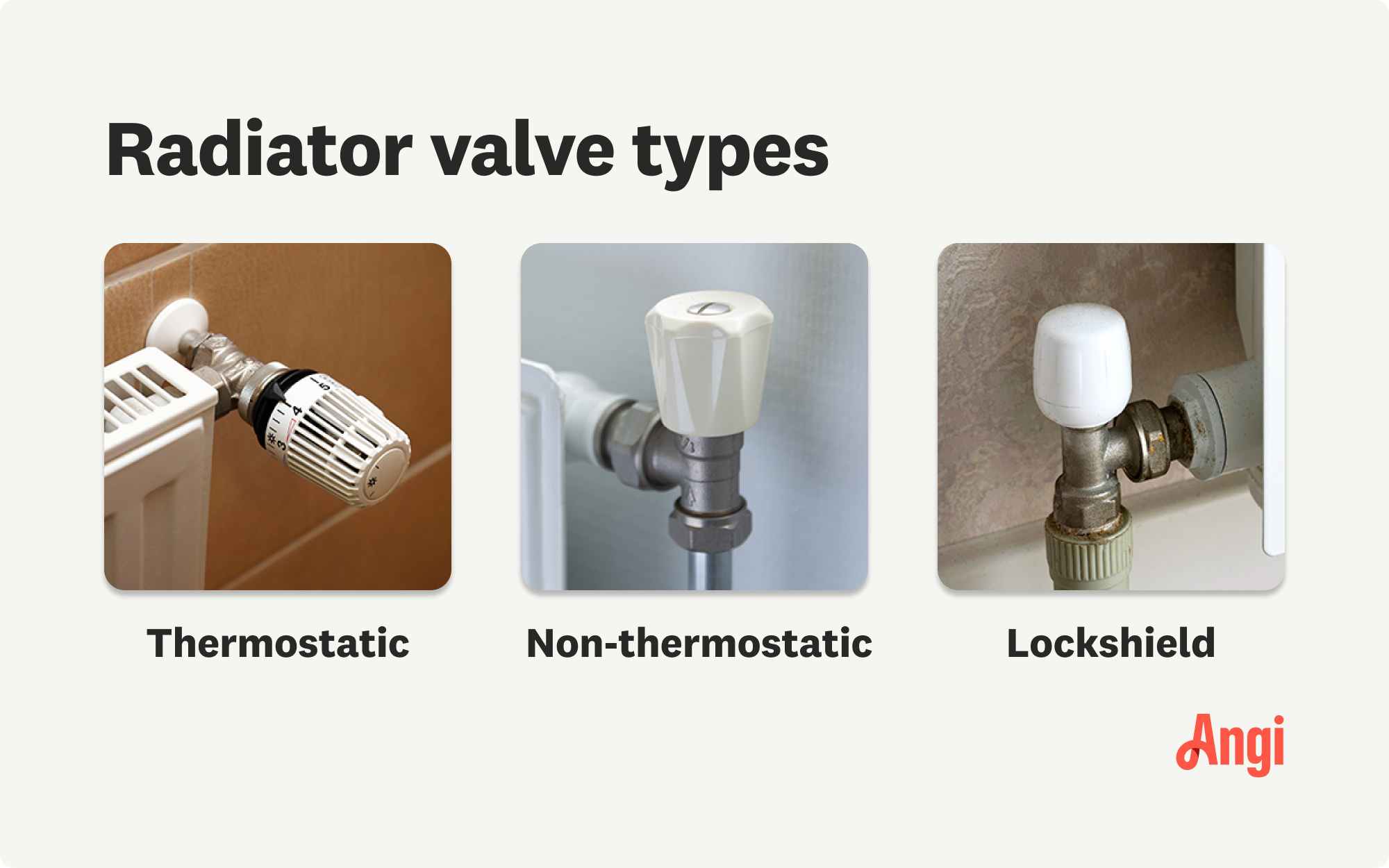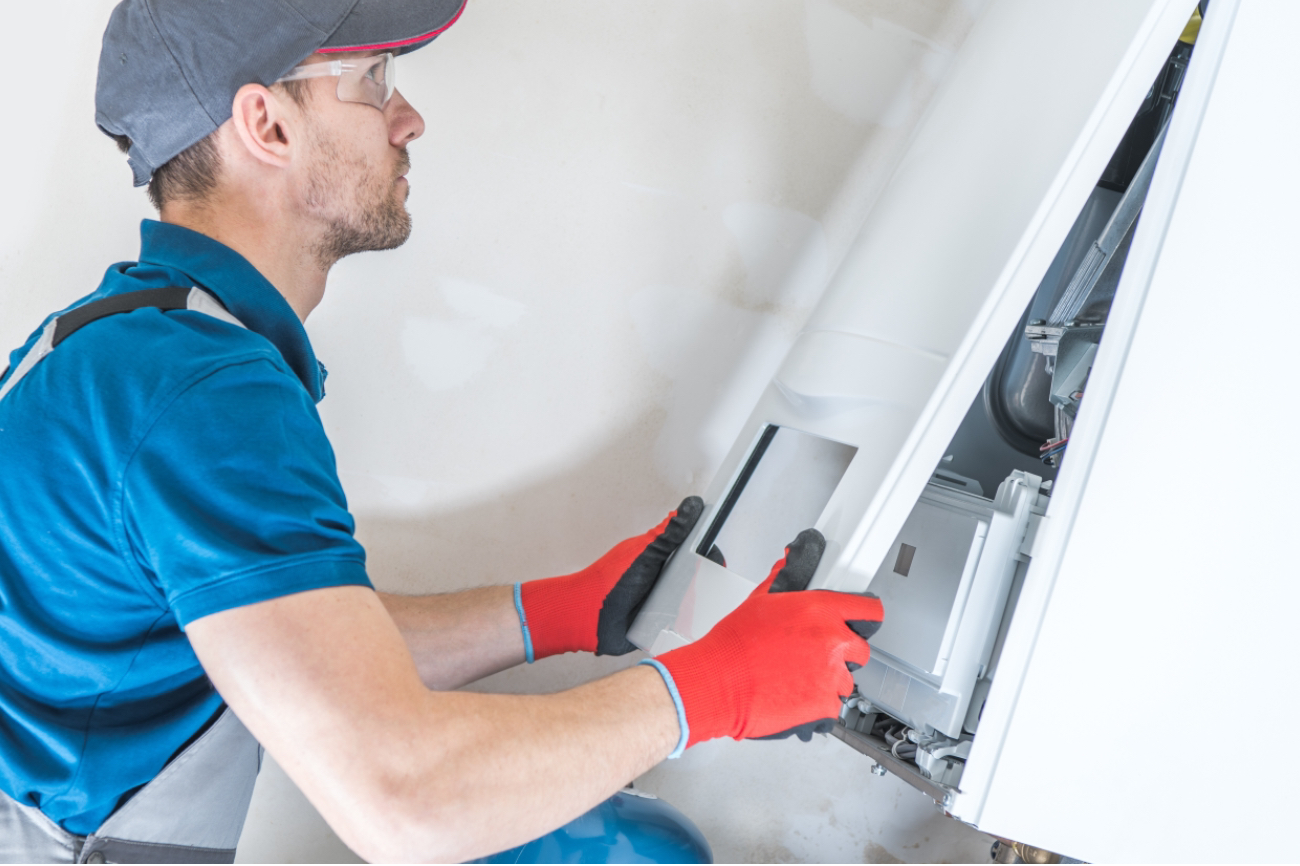
Your leaky ductwork may be hiking up your energy bills. We explore the cost of checking air ducts for leaks, which may be worth it for your home.
Stop a noisy radiator from disrupting your day


Radiators move hot water or steam, so they may hiss from time to time.
A stuck or clogged air vent can cause a hissing sound.
Radiator leaks may lead to hissing noises.
You may need to bleed the radiator to fix the hissing.
Call in a pro to diagnose and fix a hissing radiator if you can’t find the problem.
You’re settling into bed on a chilly winter night, but suddenly, you notice your radiator hissing. The hissing sound coming from the radiator threatens to keep you up all night, both annoyed by the sound and worrying whether something serious is wrong with your home’s heating system.
So why is your radiator hissing? As it turns out, there are many different potential causes behind this pesky problem, and some of them are fixable with DIY methods.

Before you dive into the different parts and problems that can lead to a hissing noise in the radiator, it’s helpful to understand the basic mechanics of how the whole thing works. If you’re wondering how radiators work, it all comes down to convection.
The radiator is connected to a boiler that produces steam or hot water, which travels through pipes to the radiator. The radiator is typically made with metal for better conduction, and the metal heats up and begins warming the air around it. But sometimes, the steam doesn’t vent properly, or there’s a leak in the system. These issues, and several other potential culprits, can lead to a hissing radiator.
The system air vent, also called the air valve, needs to open fully to either take in ambient air when the radiator is not heating the room or release air during the heating cycle. If the air vent gets stuck, it may prevent the air from properly releasing, leading to a hissing sound.
Check the control valve of the radiator, which should be near the floor, and make sure it’s all the way open. Only close it when you want to turn the radiator off. If the control valve isn’t the issue, you may need a new air vent.

When you’ve confirmed that the control knob is set fully open and the radiator hissing is still a problem, you may need to replace the air valve entirely. The air valve may be old or damaged, or you could have a valve that’s too small for the radiator.
Check the size of the air valve before heading to the home improvement store for a new valve. You’ll need to turn off the radiator and let it cool fully, then carefully turn the old valve counterclockwise to remove it. Then, wrap the connection with thread sealing tape before screwing the air valve, venting side up, back onto the radiator.
If you aren’t sure how to find the right size or how to properly install the new valve, you should hire a boiler repair person to replace the air valve for you.
If you notice your radiator making hissing noises, it’s often a sign that the vent is obstructed and needs some care. The air vent may be clogged with rust, calcium buildup, or other debris, preventing it from functioning properly. Fortunately, this is an issue you can easily handle at home.
To address the problem, turn off the radiator and let it cool. Then, remove the air valve and soak it in vinegar for at least 30 minutes. After soaking, rinse the valve with cool water, allow it to dry completely, and then replace it. This simple maintenance step can help restore your radiator’s efficiency.
With all that hot water or steam moving through the system, a radiator may hiss when these elements begin to leak. If the vent opening is facing sideways or down instead of up, water or steam can leak out. The air valve can also leak if it isn’t properly connected, which is why it’s important to wrap the connection with thread sealing tape before screwing a cleaned air valve or new air valve onto the radiator.
If the issue isn’t the air valve, it’s time to call in a repair person. A radiator leak could mean the entire radiator needs a replacement, and the longer you wait, the more water damage you could be dealing with. You can expect to spend about $100 to $2,500 on the cost of a radiator replacement, while water damage restoration costs anywhere from $450 to $14,700.
Trapped air is one of the most common reasons for a hissing radiator. When air gets trapped inside the radiator, it can prevent steam from properly circulating, causing water to block the steam from entering the radiator. This blockage creates pressure that results in the hissing sound. Left unchecked, this issue can reduce your HVAC system’s efficiency, making it harder to heat your space effectively. Fortunately, bleeding the radiator to release the trapped air is a simple fix that can restore optimal performance and eliminate the noise.
Bleeding the radiator involves turning off the radiator and allowing it to cool, placing a towel near the radiator, and opening the radiator bleed valve located toward the top of the radiator. You’ll open it just enough to let the air hiss out, but carefully shut it again when you notice a bit of water start to leak out.
Add radiator bleeding to your annual maintenance checklist for your home’s heating system, as doing this about once per year can help manage any hissing or other unpleasant noises coming from the radiator.
If your radiator is hissing or making other strange sounds, like banging or gurgling, it’s usually safest to hire a local boiler repair company to come take a look. There are many different issues that may cause radiator hissing, and if you aren’t confident in what you’re doing, you could be burned by the hot water or steam in a radiator, break off one of the important knobs or valves, or be stuck with a watery mess. Instead, skip the hassle and let the pros handle these repairs so that you can be cozy and warm at home again with minimal radiator downtime.
Getting a tuneup before cold weather hits ensures you don’t find yourself without heating when the temperatures drop.
Very knowledgeable. Professional. Above and beyound
Absolutely in love with our new walkway and patio. The job was finished quickly with amazing quality. Very knowledgeable and professional! Highly recommend!
Mr.Rowley was very professional and quick to respond to my issue. His price was also fair and the work shows
Great job. Fair price and came on time and finished quickly. Highly recommend.
I contacted Agility Van Lines spoke with Shane, approximately Jan.,2024, Looking for a rough estimate on moving a 1 bedroom apt 700 miles to upstate Gloversville NY. In first week May 2024. I told Shane there are no giant heavy items, no, washer, dryer, couch, wall unit, no bedroom...
Inspector was courteous and professional. He seemed to have a high level of knowledge about his industry and gave a very honest and thorough report. Would highly recommend
The service was always done on the day scheduled and on time. I was not available when the service was preformed but I never worried that the job was not completed. I had to ask for extra work to be done and it was done according to my request and on the day I requested. I was very satisfied...
I originally hired Herman Exteriorto install gutters. I found them to be so professional, skilled, and passionate about their work that i hired them to install the roof. They were respectful of my home and gardens. When the job was finished my yard was left immaculate. Santi and Christian...
He was friendly and courteous. Did it on the cheap and it was quick!
We have used 3CS Carpentry for multiple projects, and thereâ s a reason why. Itâ s SO hard to find reliable contractors that not only show up to do the work, but the quality of work that we wanted. Carlos and his team are so thorough and meticulous with everything they do and very...
From average costs to expert advice, get all the answers you need to get your job done.

Your leaky ductwork may be hiking up your energy bills. We explore the cost of checking air ducts for leaks, which may be worth it for your home.

Switching from oil to gas heating could impact your savings. This guide will help you understand the cost to convert from an oil furnace to a gas furnace.

When your HVAC system is acting up, it could be the blower motor to blame. See how much blower motor replacement costs and what impacts the price here.

Discover heat exchanger replacement costs to learn about price factors, labor, and ways to save before hiring a pro or starting your project.

Not sure which type of furnace humidifier is best for your home? We’ve broken down four different options, explaining how they work and their benefits.

Having dirty evaporator and condenser coils works your HVAC system harder than it needs to. Here’s how to clean your air conditioner coils like a pro.